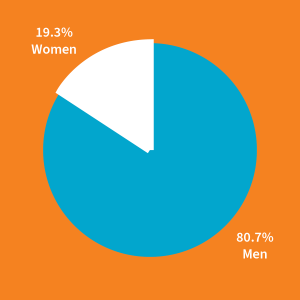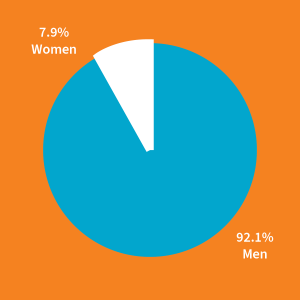The skills landscape across the world has been facing transformation as a result of digital disruption. With COVID-19 accelerating change at an unprecedented rate, what is happening in the UK and what does it mean for learning and development?
Believe it or not it’s October, and we’ve been feeling the impacts of the coronavirus pandemic for nearly nine months. We’ve witnessed an acceleration of change across almost every industry unlike any in our recent history. From the shelves in supermarkets empty of food and hygiene essentials to the streets of all major cities and towns empty of shoppers, workers and tourists. Fast forward and we’re now entering into quarter three – shops, pubs and restaurants are back open (until 10pm at least…) and it seems most have adapted to our new normal.
But what’s happening behind the scenes in organisations across the country? With the furlough scheme ending and businesses forced to make restructures, how will the UK skills landscape emerge? What does it mean for those most likely to be effected by workplace trauma? And ultimately, how will learning and development be effected long term?
The Open University have completed their annual Business Barometer report in order to delve into the state of the current UK skills landscape; what the future might look like and how specific social, political and economic events have had an impact. It outlines where the skills gaps are likely to be and how we can combat them.
Survival of the Fittest (or most adaptable…)
Unsurprisingly, the key focus of the report was the overall impact of the coronavirus pandemic. With around 70% of businesses fearing a devastating second lockdown, it’s not a shock that over half of the pool cite cutting costs as vital to their survival. Initially, this seems like a worrying thought for learning and development within organisations, as less money overall quite possibly means less money spent on training.
This is echoed as we move through the report with 56% stating they’ve been forced to cut their training budgets due to financial fall out and the need to future-proof their businesses. But what’s most concerning is that the same percentage (56%) are also experiencing skills shortages.
Organisations have expanded their expectations from their employees and new recruits; “Adaptability and ability to learn, together with transferrable and digital skills, are priorities for large numbers of organisations who want their workforces to be ready for whatever the future holds.”. It’s unclear how organisations build resilience and lifelong learners without investing in it!
Employers acknowledge that encouraging and growing employee skillsets is likely to be a pivotal part of the rebuild. Around a third (32%) of businesses anticipate a 10% increase in investment on staff skills development moving forward. With 28% of the pool reporting they will be directly increasing staff training budgets over the coming months, choosing to upskill and develop talent in house.
At Saffron, career adaptability isn’t a new concept. We’ve been focusing on the impending workplace trauma as a result from digital disruption for some time. Working with organisations such as Nesta and the TUC, to a develop ground-breaking solution for those likely to be most effected by the post COVID-19 crisis. Nesta themselves tackle the essential emerging green economy in their Going Green report. By investing time and resources into this new area of growth and by upskilling our workforces – we can aim to create a far more stable future for those most at risk.
A lonely front for Britain’s workforce
Whilst its easy to get bogged down on the impacts of the pandemic, it certainly isn’t the only factor affecting the UK skills landscape. With Brexit a never-ending cycle of ‘will they, won’t they’, it’s easy to forget the likely skills shortage the break with our European partners will cause. One in five businesses anticipate losing talent and 43% report that they’ve found it harder to recruit workers with the skills they need, as a direct impact.
Diversity, Localised Skills Deficits and an Ageing Workforce
Diversity has always been key to achieving a versatile, far reaching and skilled workforce. But even in 2020 only 19.3% of executives and 7.9% of CEOs are women and according to research undertaken in 2019 just 3.3% of FTSE 100 chairs, CEOs and CFOs are from BAME backgrounds a figure which hasn’t changed since 2014.
In May, the world witnessed the devastating death of George Floyd. An undeniable catalyst for change, with over 67% of businesses leaders stating they are actively looking to hire candidates from more diverse backgrounds. But ultimately, the proof is in the pudding. We need to see this change followed through and more opportunities created for those with diverse backgrounds.
In addition, localised skills deficits are playing a key part in the lack of development in certain areas. It’s essential that employers are conscious of these gaps and play their part in development – whether that may be through apprenticeships or upskilling their existing workforce.
The UK’s population is ageing and so is its workforce. With advancements in health care and issues with pensions (or lack thereof) – guaranteed retirement at 60 is almost a thing of the past. Ensuring that older workers have the skills they need to keep working longer is essential. Over 34% of organisations report they have been undertaking training for their older staff, “the longer working life we all experience, coupled with increasingly rapid innovation and change, means continuous learning is now essential.”.
To recruit or upskill: are they mutually exclusive?
For businesses looking to fill skills gaps in your workforce, there’s a tricky balancing act between new recruits or upskilling the employees you have. In order to emerge into the post-pandemic world and begin your rebuild successfully, ensuring that your workforce has the tools they need to be competent and confident in their roles is essential. Investing resources into the learning and development avenues that are best placed in your business makes for a more efficient and adaptable future.
But expanding your workforce can reap huge results too. As we’ve mentioned there’s a substantially larger pool of jobseekers looking for their new role and with them, they bring new knowledge and skills that could be vital to the bounce back.
Organisations have spent upwards of £6.6 billion to plug short term skills gaps this year, with over £1.2 billion of that directly being spent on temporary staff. Whilst short term fixes are sometimes necessary, thinking long term by investing in your current workforces’ adaptability is more efficient.
Please Mind the Gap
With the UK skills landscape continuing to feel the brunt of unprecedented events, what is the key to improvement and growth? Vitally, it is businesses addressing their skills concerns and knowing how best to tackle them. As The Open University concluded, “leaders should not lose sight of the importance of developing skills to meet and overcome the challenges. […] the need to ‘grow your own’ talent has never been more pertinent.”.
But identifying these concerns and addressing them are two different things. Some of the key gaps are in areas most difficult to tackle (19% noticed gaps in soft/human skills, 34% in managerial skills and 34% in leadership skills). These are the type of skills which take time and practice to build – a precious commodity in this age. But skills acquisition can be accelerated. At Saffron we have been using the concepts of deliberate practise to significantly accelerate the acquisition of skills with a virtual mentor, Skillsbot, which utilises behavioural nudges, deliberate practice concepts and encourages the building of muscle memory.
Time – that precious commodity we talked about previously is needed to practice skills; so using point of need tools that can walk your workforce through new systems and processes will create time and remove cognitive overload to help make the time for skills acquisition.
Unsurprisingly the digital skills gap is still most worrying for businesses, “This rapidly changing environment is driving 56% of employers to say that digital skills need to be improved”. So, ensuring your workforces are up to speed with their human skills as much as the systems and tech is paramount and having ‘in the workflow learning tools’, such as Saffron eaSe to support digital skills is equally vital for an organisation’s survival.
Driving Forward
If this year has taught us anything, it’s that we really don’t know what’s around the corner. So, preparing and arming ourselves with a resilience toolkit is vital. By upskilling and allowing our workforces to increase their own adaptability, we stand to put ourselves in pretty good stead. We know that digital disruption is affecting more and more jobs every day but by investing time and resources into solutions that will positively impact our employment landscape for generations to come, we can help make a real difference.
Let’s think forward, think differently and enter 2021 stronger.








